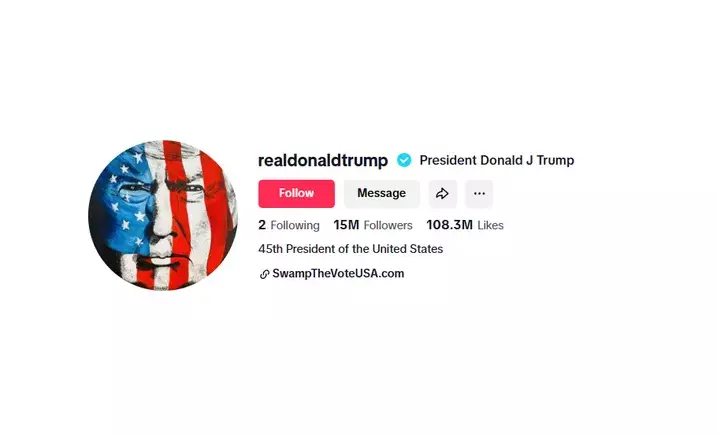TikTok’s saga in the United States continues to evolve, capturing the attention of users, lawmakers, and legal experts alike. The app, known for its short and engaging videos, has found itself in a precarious position as regulations and political dynamics converge around the issue of national security and foreign ownership. As the recent developments unfold, it becomes clear that despite its continued operation, TikTok is tethered to complex legal and political uncertainties that could jeopardize its future in the U.S. market.
The conflict regarding TikTok began in earnest during the Trump administration, which raised alarms about the app’s ties to the Chinese government. Appropriately titled the “Protecting Americans from Foreign Adversary Controlled Applications Act,” the legislation aimed to shutter or force the sale of apps like TikTok that could pose a risk to national security. After the Supreme Court upheld a bill mandating a sell-off, the app theoretically faced a shutdown. However, with the transition to the Biden administration, the enforcement of this ban suffered from ambiguity.
President Biden’s team signaled a willingness to approach the issue differently. Nonetheless, the last-minute declarations from Trump, who promised a temporary stay, complicate matters further. The attempt to create a legal workaround might not hold water, given that legal scholars suggest that the extension announced by Trump post-January 19 could be rendered ineffective. This raises questions about the legitimacy of the ongoing operations of TikTok in the United States and whether its presence is, in fact, in violation of the law.
Amid this bubbling tension, major tech companies have reacted cautiously. Oracle, which serves as TikTok’s back-end support, has embraced Trump’s assurances that it would be protected from any legal repercussions resulting from the app’s operation. However, Apple and Google have adopted a far more conservative stance. Their hesitation speaks volumes about the risks they perceive, particularly the potential financial penalties linked to supporting an app that may well be operating outside the confines of the law.
The stark distinction in their responses illuminates the complexity of regulatory compliance for these tech giants. Apple and Google face a daunting proposition: they must weigh the value of supporting a popular app against the substantial fines they could incur. If TikTok were suddenly declared illegal, the ramifications could be severe not just for the app, but for the tech companies facilitating its distribution. The fallout could deter them from re-establishing any sort of partnership with TikTok, even if future negotiations lead to a resolution.
At the heart of this dispute lies a more profound dilemma: national security. Lawmakers from both sides of the aisle have expressed concerns about the app, as evidenced by the overwhelming vote tally of 431 to 83 in favor of a ban. This level of bipartisan consensus suggests that substantial information has informed these opinions, although the specifics remain confidential due to their sensitive nature.
The pending national security briefing that President Trump has yet to receive may dramatically shape his view of TikTok. If the details of the threats posed by the app were to be unveiled, it could sway Trump’s perspective and influence his administration’s approach. Until then, the political ramifications of TikTok remain shrouded in uncertainty, as stakeholders grapple with the differing priorities of national security and economic interests.
Trump’s perspective on potentially acquiring a stake in TikTok illuminates an intriguing facet of the ongoing discourse. The notion of leveraging national security concerns for financial gain raises ethical questions regarding the administration’s motives. Is this a genuine effort to safeguard Americans, or is it a complex game of economic chess aimed at extracting value from a global platform?
While TikTok’s operational status, albeit precarious, suggests that users can continue engaging with the platform for now, this may not last. The interplay of legal, political, and economic factors is creating a shifting landscape that could lead to significant changes at any moment. As the dust settles from the current flurry of activity, it’s evident that TikTok’s journey in the U.S. is far from over. The stakeholders involved must brace themselves for a potential shakeup while users remain caught in the crossfire, unsure of what the future holds for their favorite social media platform.


Leave a Reply